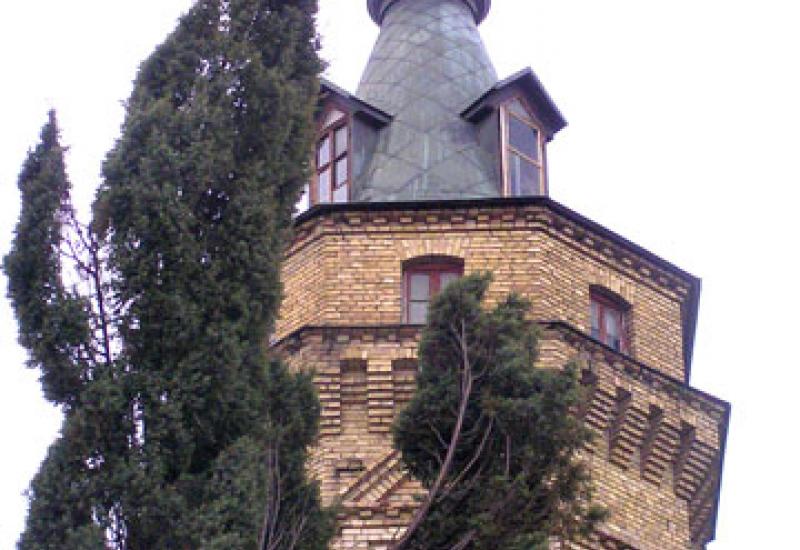In our polluted metropolitan areas there are increasingly appeared the blotches of evergreen plantings. Most of them are from a family of junipers, featuring a variety of shapes and forms, but the same property to clean the air. Per day 1 hectare of juniper evaporates up to 30 kg of volatile production, detrimental effect on pathogens. There is such a geyser of the health in the park of the KPI.
Juniper near KPI
Right from the entrance to the first building there is an evergreen group of plants. The tree with twisted crown is named pyramidal juniper. This plant is long-lived. For example, in the juniper grove the New World in the Crimea trees are 500-700 years old. Our juniper is younger, but it grows up to the second floor. Snow caps of recent years hampered a little its crown and it became a little unkempt. But it is still beautiful.
In one version the name is derived from the Proto-Slavic juniper"(Yalova, barren), on the other - from the Celtic ieneprus - scratchy. It originates from the cypress family. There are about 70 species, of which in Ukraine there are only 9. It is unpretentious to the soil, hardy, but demanding to illumination. In juniper shadow there never exist grown plants, only children. In the first years of life the young tree needs the shadow created by its parent crown. However, growing, the trees need more light, its absence inhibit the plants. Therefore, sadly, they die. The juniper, as in pine has the taproot. If it cut through, it will not grow in depth and the plant will wither away.
Translations
For many nations the juniper is a symbol of overcoming death and eternal life. Juniper wood does not rot and eventually acquires a special strength, so distinguished persons were buried in expensive coffins of juniper. In ancient Greece and Rome the juniper was considered a means against snakes. In the myth of the Argonauts there is a story how Medea and Jason lulled with juniper the monstrous snake guarding the golden fleece. In Russia it is believed that juniper seeds, if carry, protect against bites of reptiles.
It was noticed that the milk in a vessel of juniper, even on a hot summer day is not turned sour, and steamed with juniper barrels for a long time do not spoil pickled vegetables. Also it seemed strange long unfading green of juniper and its special balsamic smell and number three, which correspond to parts of the plant (needles collected at three, three scales in the female spikelets, three seeds in its berries). All this gave rise to the belief in the supernatural power and a lot of prejudices and customs associated with juniper. Until now there are still remained in the homes the consecrated branches of juniper, considering it protection from illness and adversity.
Applications
The so-called berry tax in Russia says about the wide use of juniper. This tax existed in the XVII century. Berries in a large number were taken to Moscow in order Apothecary, where the oil juniper and the juniper alcohol were obtained from them. Doctors in juniper oil stored surgical sutures, treated them to cuts, wounds and the like.
Scientific studies have confirmed that the antibacterial properties of essential oil of juniper is unmatched and no tree does emit volatile production as much as juniper. Juniper berries are blue with glaucous bloom. They are very fragrant and have antibacterial properties. They are widely used in medicine, particularly in homeopathy.
Women use the berries in canning, men - for infusions. Juniper berries are part of many spices. Dried fruits collected in the Crimea, will use not only as a necklace, but also a guardian in the house.

